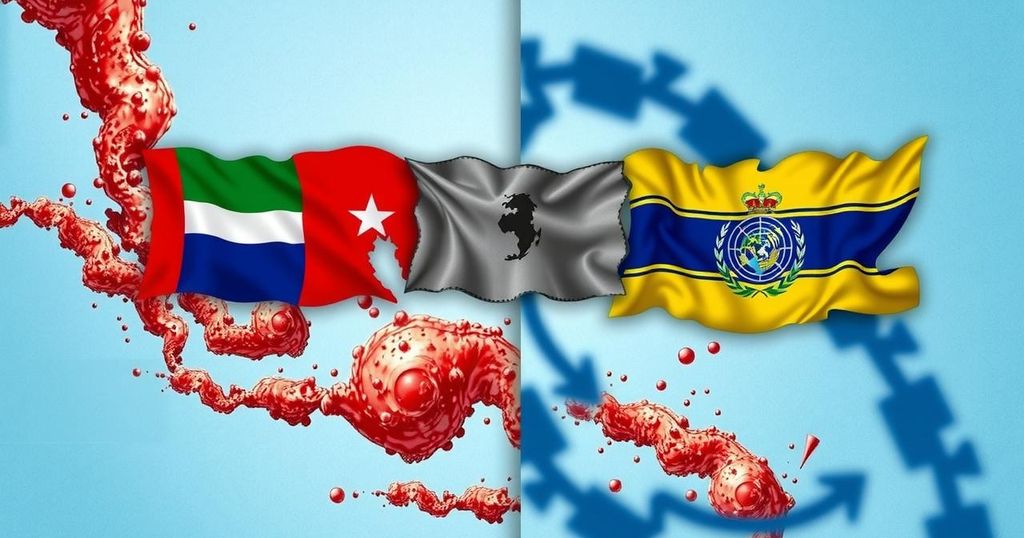Guyana intends to approach the International Court of Justice in response to Venezuela’s strategy to elect a governor for the disputed Essequibo region. This initiative violates a December 2022 agreement aimed at diminishing conflict. Guyana emphasizes its sovereignty and warns that Venezuela’s actions could breach international law. The longstanding dispute has been exacerbated by recent oil discoveries in the region.
Guyana announced its intention to appeal to the International Court of Justice (ICJ) following Venezuela’s plan to elect a governor to the disputed Essequibo region, an area that Venezuela has long claimed. In a statement, Guyana’s Foreign Ministry asserted that this initiative breaches a December 2022 agreement intended to maintain peace regarding the resource-rich territory. The ministry emphasized the illegality of conducting elections with Guyanese nationals in a region they regard as part of their sovereign territory, warning that such actions would violate international law set forth by the United Nations Charter.
The Venezuelan government has consistently maintained that the Essequibo region belongs to it, citing historical boundaries from the Spanish colonial era. Venezuela rejects the border established by an international arbitration in 1899, when Guyana was still under British rule. Following unsuccessful mediation attempts, Guyana sought a definitive ruling from the ICJ in 2018, affirming the legality of the 1899 border. Currently, Venezuela is expected to respond to Guyana’s claims by late August, with no ruling anticipated this year.
The territorial dispute between Guyana and Venezuela dates back over a century, rooted in colonial-era boundaries. The Essequibo region is significant due to its abundant natural resources, including oil and minerals. The discovery of large oil reserves off the coast of Guyana in 2015 intensified Venezuela’s interest in the area, prompting renewed claims and tensions. The ongoing legal battle in the ICJ aims to resolve the historical issues surrounding this contentious boundary, echoing a long-standing conflict between the two nations over sovereignty and territorial rights.
In summary, Guyana’s decision to escalate the territorial dispute to the International Court of Justice reflects its commitment to defending its sovereignty over the Essequibo region. Venezuela’s proposed election of a regional governor is viewed as a direct violation of both the previous agreements between the nations and international law. As both countries await further developments in the ICJ proceedings, the geopolitical landscape remains tense, highlighting the complexity of historical territorial claims and current strategic interests.
Original Source: apnews.com






